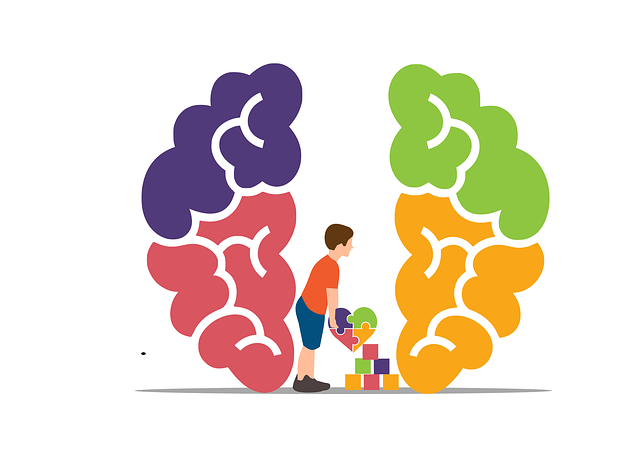Mental health policies are crucial for building resilient communities and improving well-being, especially for individuals with conditions like Boulder Autism Spectrum Disorder (ASD) Therapy. Effective policies ensure access to quality care, promote early intervention, and combat societal stigma. Advocacy groups play a powerful role in transforming mental health care by highlighting unique community struggles, fostering empathy, and pushing for system-level changes. The Boulder ASD community faces barriers in accessing specialized therapy, necessitating policy advocacy and analysis to integrate evidence-based practices into mainstream services. A critical review of current policies is essential to improve service delivery, reimbursement, and holistic well-being for ASD individuals. Advancements demand a collaborative approach integrating innovative therapies, self-care routines, and emotional healing programs to prioritize mental health across communities.
Mental health policy analysis and advocacy play a pivotal role in shaping communities’ overall well-being. This article explores the intricate relationship between mental health policies and their profound impact on diverse populations, with a specific focus on Boulder Autism Spectrum Disorder (ASD) therapy. We delve into the power of advocacy in driving systemic change, analyzing existing policies and identifying gaps, particularly for ASD care. By examining strategies for effective policy improvements, we aim to illuminate paths toward enhanced mental health support, ensuring better outcomes for individuals navigating ASD’s unique challenges.
- Understanding Mental Health Policy and its Impact on Communities
- The Role of Advocacy in Shaping Mental Health Care
- Focus on Autism Spectrum Disorder (ASD): Unmet Needs and Challenges
- Analysis of Existing Policies and Their Effectiveness for ASD Therapy
- Strategies for Effective Mental Health Policy Change and Improvement
Understanding Mental Health Policy and its Impact on Communities

Mental health policy plays a pivotal role in shaping communities and the well-being of its members, especially those living with conditions like Boulder Autism Spectrum Disorder Therapy (ASD). Effective policies can ensure access to quality mental health services, promote early intervention, and reduce the societal stigma associated with various disorders. When tailored to address specific needs, these policies can significantly impact the lives of individuals dealing with anxiety relief, burnout prevention, and other mental health challenges.
For instance, comprehensive policy initiatives that incorporate Risk Management Planning for Mental Health Professionals can create safer environments. Such plans enable healthcare providers to manage risks effectively, ensuring they have the resources and training to handle various situations, from acute crises to long-term patient care. By implementing these strategies, communities can foster a supportive ecosystem, encouraging individuals to seek help without fear of judgment or inadequate support, ultimately leading to improved mental health outcomes.
The Role of Advocacy in Shaping Mental Health Care

Advocacy plays a pivotal role in shaping mental health care policies and practices, ensuring that individuals like those with Boulder Autism Spectrum Disorder Therapy receive the support they need. Through tireless efforts, advocacy groups bring attention to the unique challenges faced by diverse communities, fostering understanding and promoting evidence-based interventions. By amplifying the voices of individuals with lived experiences, these groups drive change in healthcare systems, leading to improved access to quality therapy services tailored to specific needs.
Effective advocacy pushes for policies that prioritize mental wellness, integrate cultural sensitivity in mental healthcare practice, and encourage the development of specialized programs. It ensures that self-awareness exercises are incorporated into therapeutic approaches, promoting holistic healing. By advocating for policy reforms, communities can create a more inclusive and responsive mental health care system, ultimately improving outcomes and enhancing the lives of those seeking support.
Focus on Autism Spectrum Disorder (ASD): Unmet Needs and Challenges

The Autism Spectrum Disorder (ASD) community in Boulder faces unique challenges when it comes to accessing appropriate mental health care. While significant strides have been made in understanding and supporting individuals with ASD, there remain unmet needs that demand attention through effective Mental Health Policy Analysis and Advocacy. One pressing issue is the dearth of specialized therapy options tailored to the intricate needs of those on the spectrum.
Boulder Autism Spectrum Disorder Therapy must evolve to incorporate evidence-based practices that address not just behavioral symptoms but also the emotional intelligence and mood management aspects critical for overall well-being. By advocating for policies that incentivize and integrate such therapies into mainstream mental health services, we can ensure that individuals with ASD receive holistic care that respects their distinct needs and challenges.
Analysis of Existing Policies and Their Effectiveness for ASD Therapy

In the realm of mental health policy analysis, a thorough examination of existing policies and their impact on therapies like Boulder Autism Spectrum Disorder (ASD) Therapy is paramount. Current policies governing ASD treatment often lack comprehensive guidelines tailored to address the unique needs of individuals on the spectrum. This gap highlights the necessity for more effective strategies that can enhance access and quality of care. The analysis should delve into how existing policies influence service delivery models, reimbursement practices, and the integration of innovative therapeutic approaches such as emotional healing processes, self-care practices, and mindfulness meditation.
By evaluating the effectiveness of current policies, advocates can identify shortcomings and advocate for evidence-based reforms that prioritize personalized treatment plans. Incorporating strategies like self-care practices and mindfulness meditation not only complements traditional ASD therapy but also fosters holistic well-being. This multifaceted approach ensures that individuals with ASD receive comprehensive support that goes beyond diagnostic labels, promoting their overall mental health and quality of life.
Strategies for Effective Mental Health Policy Change and Improvement

Mental health policy change and improvement require a multi-faceted approach that goes beyond mere regulation. Effective strategies include Boulder Autism Spectrum Disorder Therapy integration into existing healthcare systems, ensuring accessibility and affordability for all demographics. This involves collaborative efforts between mental health professionals, policymakers, and community organizations to advocate for evidence-based practices.
Promoting Self-Care Routine Development for Better Mental Health and emphasizing Mind Over Matter Principles can complement professional therapy. Encouraging emotional awareness and healthy coping mechanisms through education and community programs contributes to societal well-being. Emotional Healing Processes, both individual and collective, are vital components in creating a supportive environment where mental health is prioritized and celebrated.
Mental health policy analysis and advocacy are essential components in ensuring equitable access to quality care, especially for underserved communities like those with Boulder Autism Spectrum Disorder (ASD) therapy needs. By understanding the impact of policies on individuals and societies, advocates can effectively shape mental healthcare. The analysis presented here highlights unmet requirements and challenges, such as insufficient resources allocated for ASD therapy, leading to delayed diagnoses and limited treatment options. Through strategic policy changes, including increased funding, improved access to specialized services, and inclusive legislative frameworks, we can enhance support systems for individuals with ASD. Ultimately, these efforts aim to promote mental well-being and foster inclusive communities, transforming the landscape of mental health care in Boulder and beyond.














